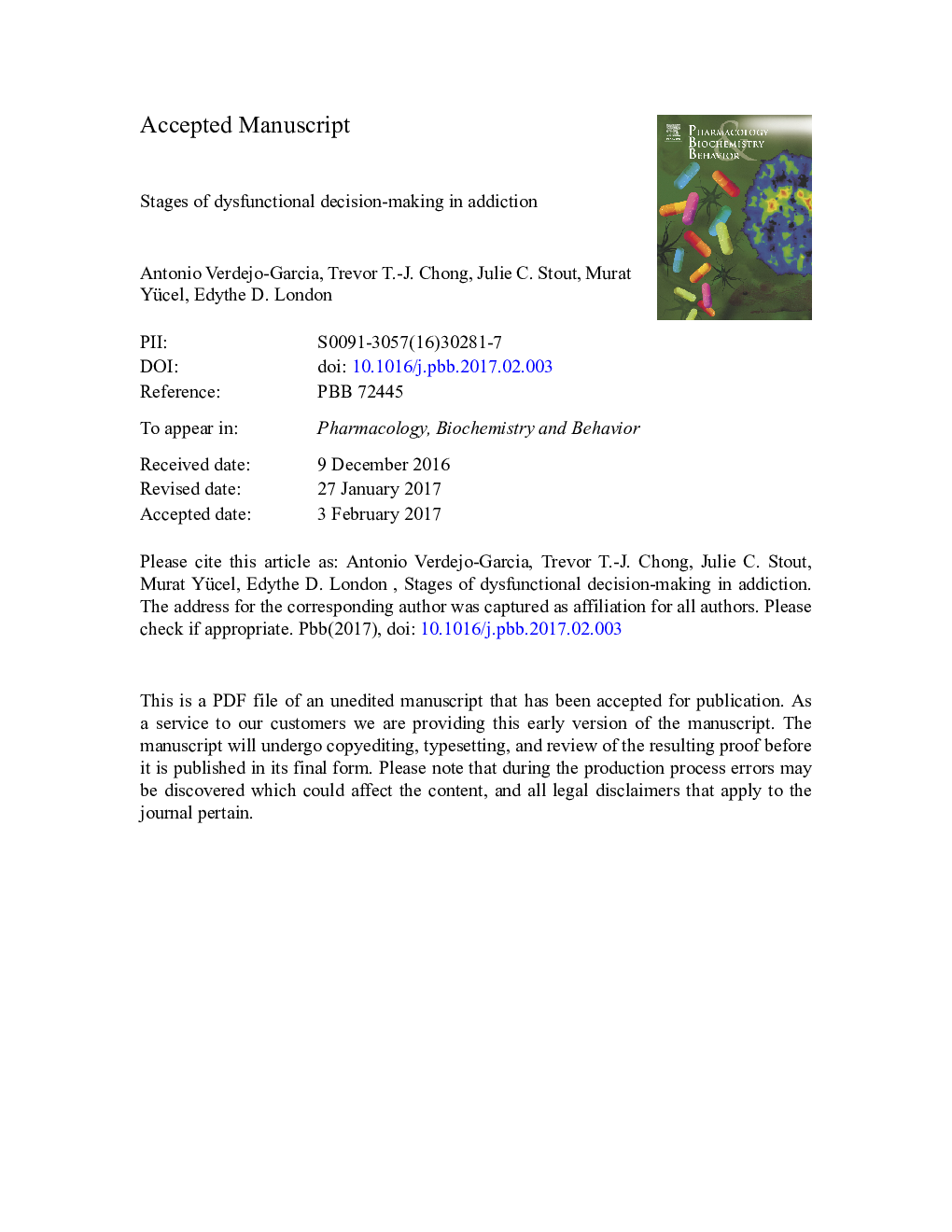| Article ID | Journal | Published Year | Pages | File Type |
|---|---|---|---|---|
| 8350096 | Pharmacology Biochemistry and Behavior | 2018 | 28 Pages |
Abstract
Drug use is a choice with immediate positive outcomes, but long-term negative consequences. Thus, the repeated use of drugs in the face of negative consequences suggests dysfunction in the cognitive mechanisms underpinning decision-making. This cognitive dysfunction can be mapped into three stages: the formation of preferences involving valuation of decision options; choice implementation including motivation, self-regulation and inhibitory processes; and feedback processing implicating reinforcement learning. This article reviews behavioral studies that have examined alterations in these three stages of decision-making in people with substance use disorders. Relative to healthy individuals, those with alcohol, cannabis, stimulant and opioid use disorders value risky options more highly during the formation of preferences; have a greater appetite for superficially attractive rewards during choice implementation; and are both more efficient in learning from rewards and less efficient in learning from losses during feedback processing. These observed decision-making deficits are most likely due to both premorbid factors and drug-induced effects. Because decision-making deficits have been prospectively associated with a greater risk of drug relapse, we advocate for greater research on modulating the component stages that give rise to dysfunctional decision-making in disorders of addiction.
Related Topics
Life Sciences
Biochemistry, Genetics and Molecular Biology
Biochemistry
Authors
Antonio Verdejo-Garcia, Trevor T.-J. Chong, Julie C. Stout, Murat Yücel, Edythe D. London,
